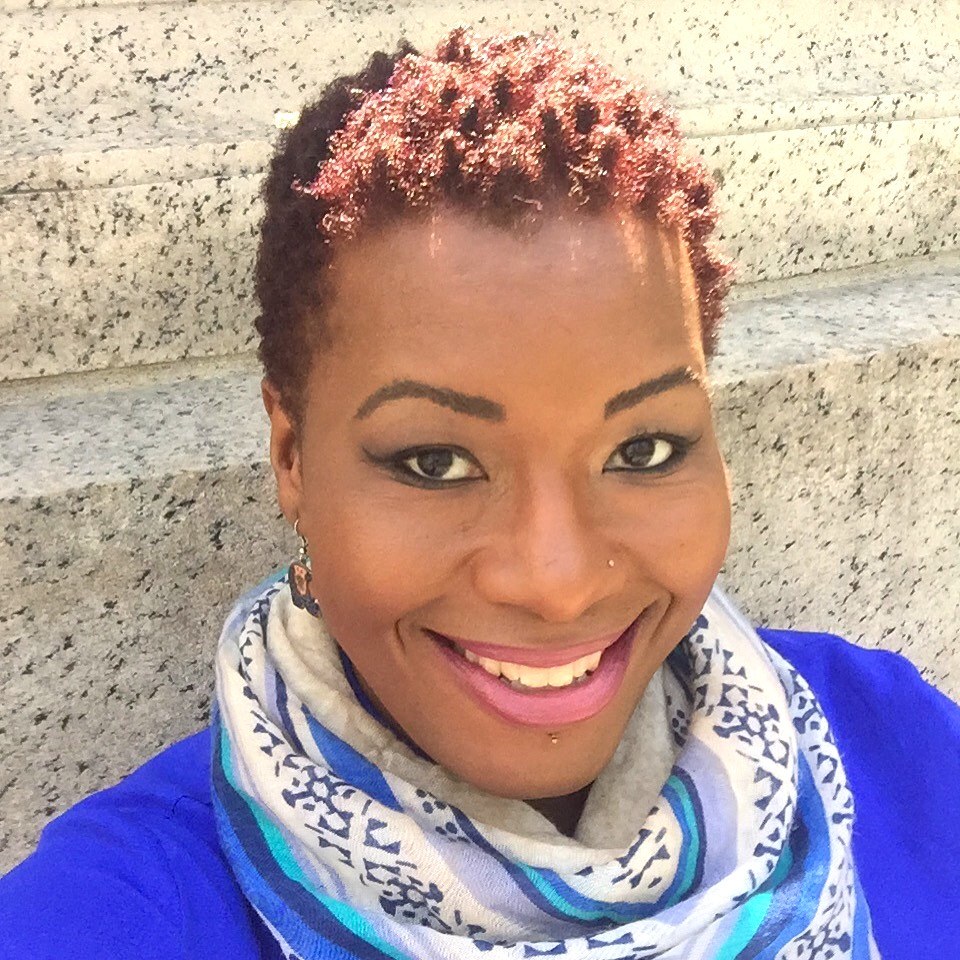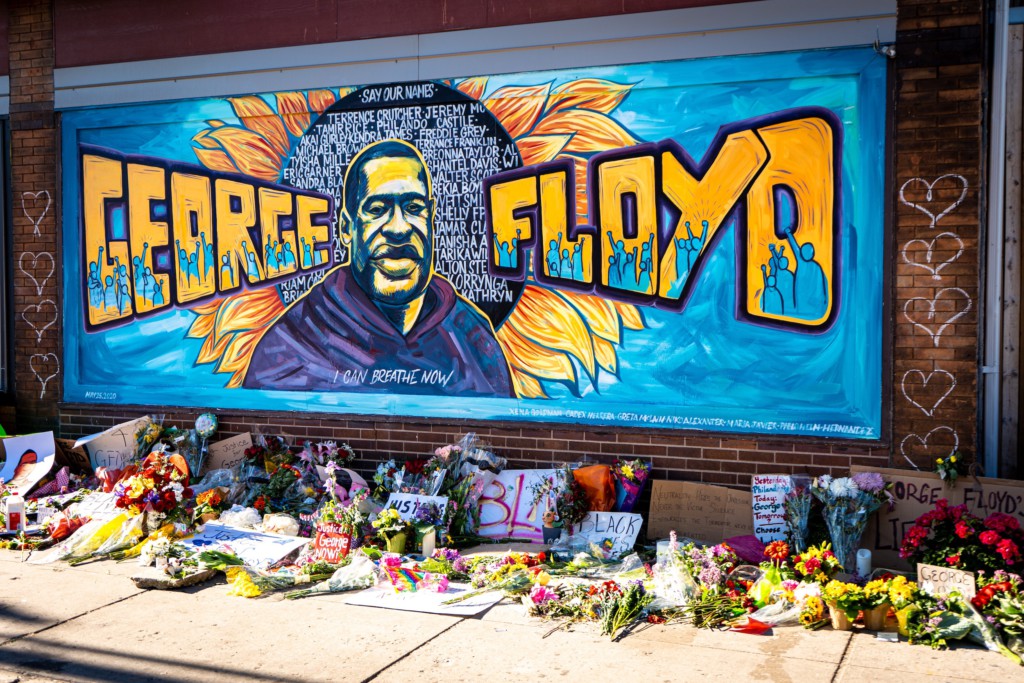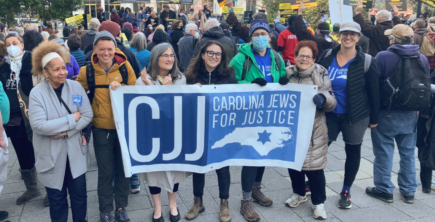
Healthy Individuals & Communities

Emerging Practitioners in Philanthropy (EPIP) joined Tides Center in 2010 and is celebrating its 20th Anniversary in 2021. EPIP is a national network of change-makers who strive for excellence and equality in the practice of philanthropy. The network empowers leaders and elevates philanthropic practice to build a more just, equitable, and sustainable world. As a funder and network member, and as a fiscal sponsor with Tides Center, Tides fully supports EPIP’s role in nurturing the leadership of practitioners within philanthropy, no matter where they are in their career trajectories. Interdependence guides us in our partnership, because our mission is deeply linked to the success of our social venture partners and the communities they serve.

“There’s an opportunity within the philanthropic infrastructure to advocate for resources.” Storme Gray, EPIP’s Executive Director (Photo © EPIP)
Tides is delighted to feature Storme Gray, EPIP’s Executive Director, to share her experience and her vision for EPIP, its membership, and the philanthropic sector overall. And if you’re seeking to advance your work in philanthropy with a social justice lens, be sure to register for R/Evolution: their 2021 virtual national conference.
How did you arrive at working in philanthropy? Was there a turning point or specific moment that led you here?
I’ve been in philanthropy for the entirety of my career, but the moment I realized I wanted to remain in philanthropy happened while I was working as a program grants assistant for a family foundation years ago. During that time, the advisory committees that made grant decisions for nonprofits often did not reflect the communities being served. We were in the middle of a grant cycle, and I was part of a portfolio focused on youth development and education. I grew up going to similar programs and receiving similar services in my hometown of Camden, NJ. Because my team and I had done the site visits, talked to executive directors, and also because I personally understood the power of such interventions for young people, I could speak to the value of an investment in those organizations.
For people like me—and folks who come from a diverse background, have faced adversity, or have marginalized identities—there’s an opportunity within the philanthropic infrastructure to advocate for resources, and add an additional lens of analysis or insight beyond what might be captured in a proposal or at a site visit. It was the moment I realized, “Oh, philanthropy is important for this reason.”
What are critical concerns in philanthropy today and how does EPIP aim to address them?

“We see ourselves as network creators and educators for the next generation of leadership on what social justice-based philanthropy can look like.” (Photo © munshots)
COVID showed us in real-time and very tangibly what racial inequity can mean for communities that have been historically under-resourced and underserved. The killings of George Floyd and Breonna Taylor, coupled with the uprisings happening in the streets, shined a light on the systems of inequity in this country—and our continued inability to address our historical relationship with racism. Philanthropy’s critical concern now is, “What do we do about racial equity and how do funders respond? How do funders support BIPOC-led organizations, build relationships, and put their money where their values are?”
Within these critical questions, EPIP sees itself as a home for the emerging practitioner who understands the potential for philanthropy to play a positive role. We see ourselves as network creators and educators for the next generation of leadership on what social justice-based philanthropy can look like. EPIP is a place for those new to the sector and for those who want to grow by learning about the challenges within the sector and about innovative ways of grantmaking, while connecting to their peers and colleagues.
What frameworks, philosophies, or values guide you as a leader?
One of the things that guides me is the golden rule—to treat others as one wants to be treated—but also the idea of doing what is right, and being in the right relationship with other people. I think of adrienne maree brown’s scholarship in her book Emergent Strategy: Shaping Change, Changing Worlds and the connections she made between Octavia Butler’s works to movement spaces and liberation. As a new Executive Director, I want to reimagine what that experience is like—what it means to be in the right relationship with my team, my board, our funders, and our members.
Change is small, change is incremental, and change is constant.
In terms of values, integrity, I hold authenticity and accountability in high regard. I’m a deeply spiritual person, drawing from wicca, African Traditional Religions (ATR), and Buddhist teachings, so a lot of my work is human-centered. I want to create space as an advocate and way-maker for others to bring their best ideas forward and challenge each other for the sake of progress. With racial equity work, it can be very messy because there is a lot we are still unlearning. I lean on brown’s lessons from Emergent Strategy: that change is small, change is incremental, and change is constant. That’s how I look at our work.
What words of advice would you have shared with a younger version of yourself as an organizational leader?
You already have everything you would ever need. There’s this idea early on in our careers where an accumulation of experiences and externally validating things are what we need to make ourselves into experts. But when I think about some of the decision-making moments and conversations I’m having with people these days, everything I needed to be a leader I already had. In terms of knowing when to speak up, speak your truth, be unafraid and just lead. What I would say to my younger self: lean into that inner knowing. I would also tell my younger self not to worry about imposter syndrome. You have it already, just “do.”
What are your organization’s priorities in the next 3 to 6 months?
Celebrating our 20th anniversary and highlighting the work EPIP has been able to accomplish is a priority. Our anniversary theme is “Re/Imagine,” and the theme for the conference is “R/evolution,” honoring the evolution of EPIP for the past 20 years, and the revolutionary movement moment that our members and the philanthropic sector are currently navigating.

Another priority is launching some of the new programs and initiatives we’ve been working on, which are a reflection of conversations we’ve had with members on how best to support them as better leaders. We want to expand our reach and impact in supporting emerging leaders, and also work with foundations to figure out how to support diverse, emergent leadership while advancing their institutional missions.
We also have a new program called Philanthropology, which offers an introduction to philanthropy but with a social-justice lens, and with a focus on the development of one’s own leadership stance. We are launching several new communities of practice, which are identity-based groups that go deeper into aspects of the work. We launched our People of Color Network (PCN) in 2005 to provide space for EPIP members of color to explore what it means to be a leader of color in philanthropy, the challenges these leaders face, and the opportunities to make a larger, longer impact. This year, we’re launching two additional communities of practice: one for emerging women of color, and a white affinity space to explore whiteness and how to better show up as an ally for colleagues and communities of color.
Sign up for the EPIP monthly newsletter or follow us on Twitter or Facebook to learn more about our work, mission, and programs, including our upcoming 2021 National Conference, R/evolution, being held virtually from June 7th to 11th.

Healthy Individuals & Communities

Our Community

Philanthropy

Read the stories and hear the voices of social change leaders fighting for justice.